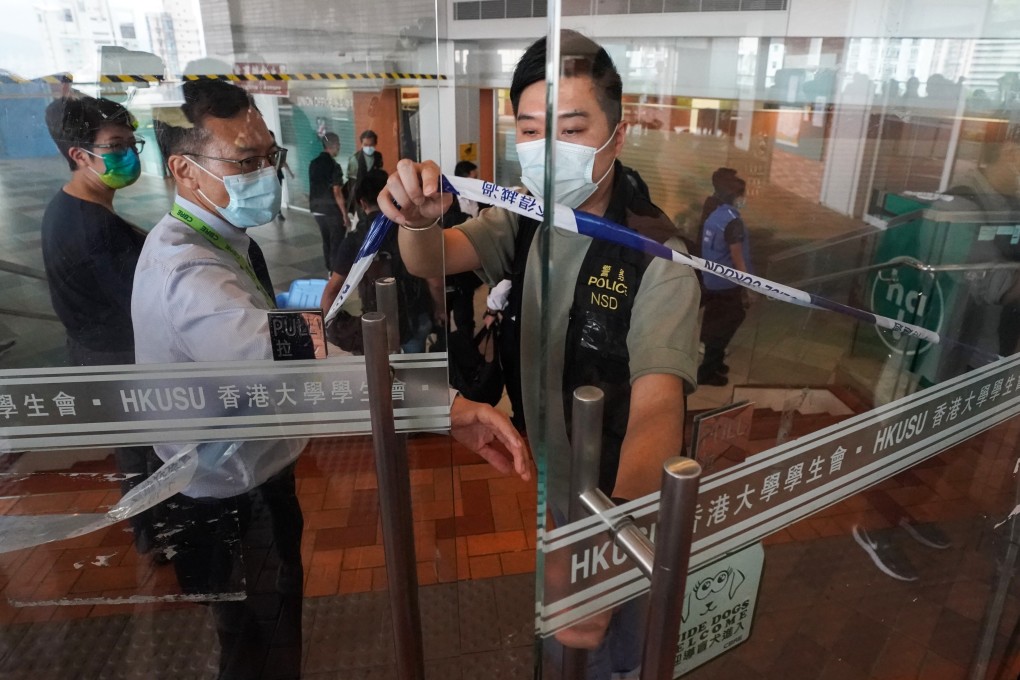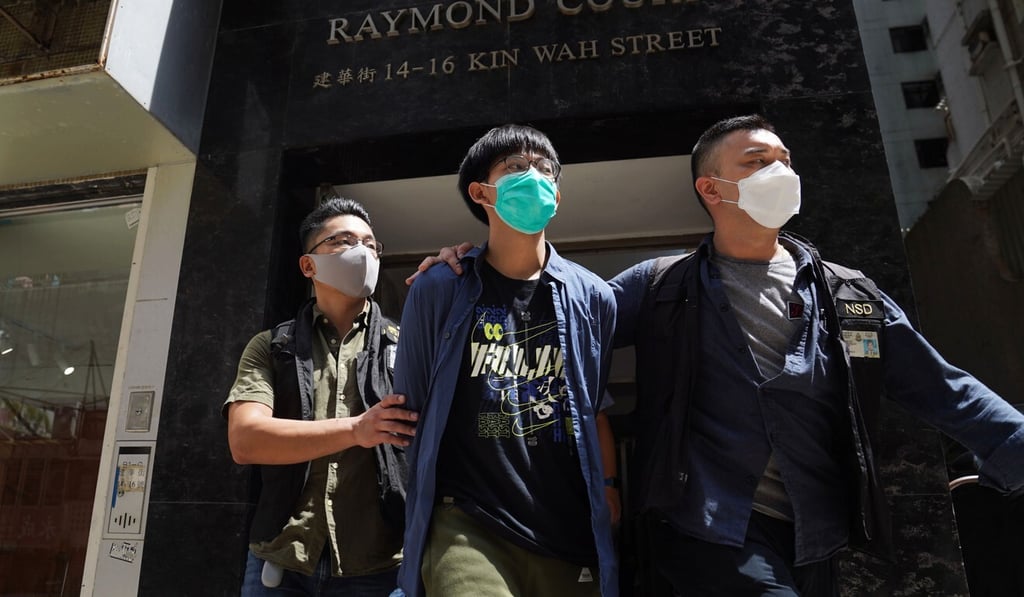University of Hong Kong quizzing student leaders over how they voted on controversial motion mourning police assailant
- With four undergraduates arrested on national security grounds, HKU is now asking other student council members to explain their actions by Friday
- The information will ‘not be used against’ them in future disciplinary proceedings, according to an email seen by the Post

Student leaders at the University of Hong Kong (HKU) involved in passing a motion last month mourning the “sacrifice” of a man who stabbed a police officer are being questioned individually by school management as to how they voted, following the arrest of four others said to have backed the resolution.
Their responses will be taken into consideration as HKU reviews an earlier decision to ban those involved from campus, according to an email sent to student council members by the university and seen by the Post.
Thirty of the 32 student union council members present at the meeting on July 7 voted in favour of the since-withdrawn motion expressing “appreciation for the sacrifice” of the assailant, who killed himself after the July 1 attack. Two present abstained from voting.

In an email sent to student leaders on Tuesday, registrar Jeannie Tsang Wing-shi asked them to answer three questions related to the passing of the motion by Friday evening: whether they were in attendance, if they proposed or seconded the motion, and if and how they voted.
The students were also told they could supplement their responses “with any further information which you consider to be useful to illustrate your role and manner of participation in the meeting and the voting”.